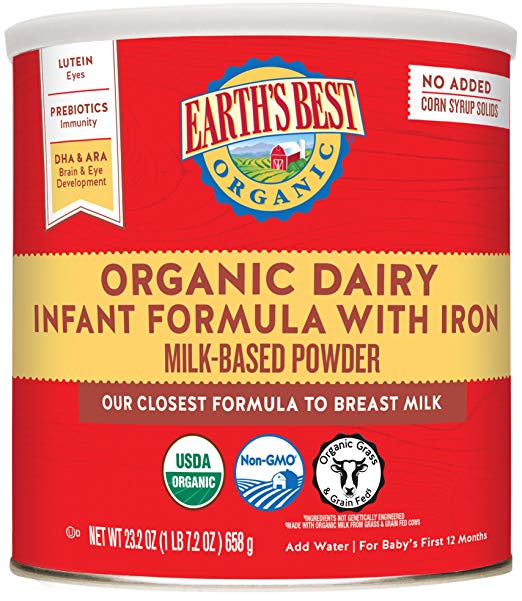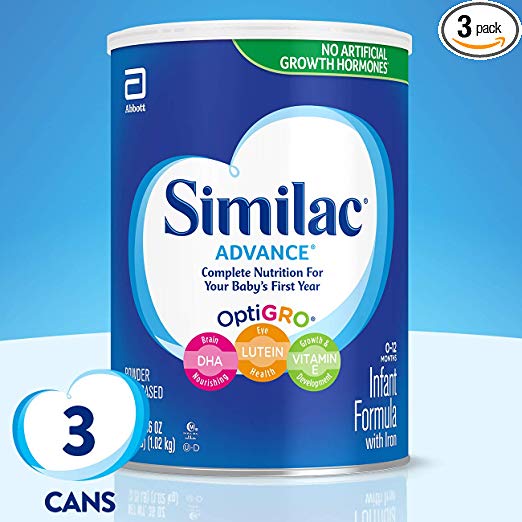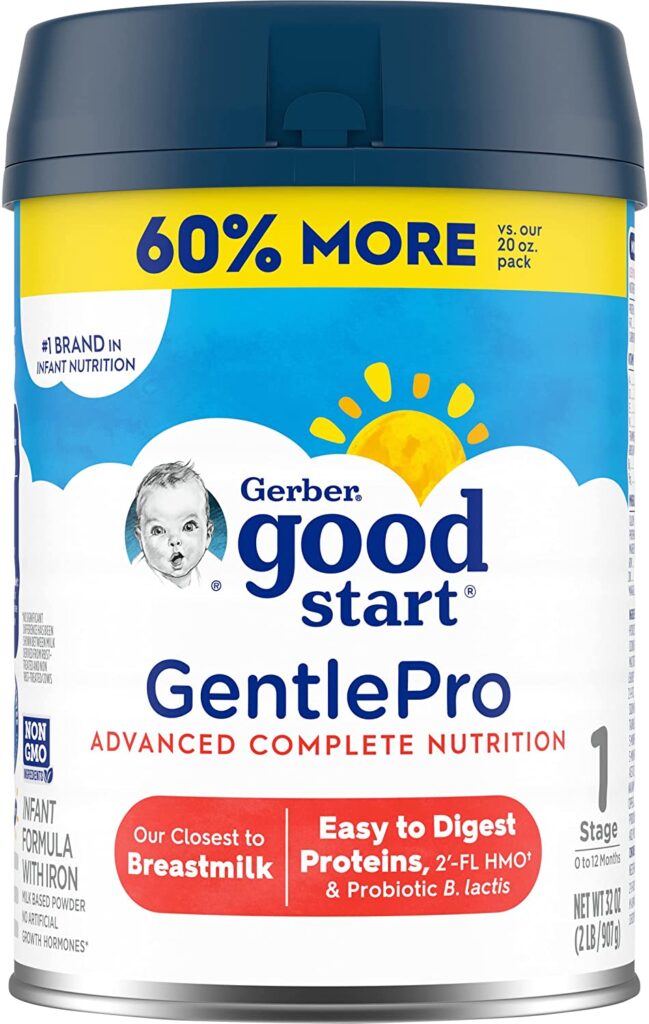Best Infant Formulas
I recommend you have some formula on hand regardless of whether you’re breastfeeding or not (just don’t open the formula unless you’re ready to use it because it starts the expiration clock ticking). What if you get hit by a bus? Or you have to take Rx meds? I’ve had two good friends who were urgently readmitted to the hospital for high blood pressure right after coming home with baby. It happens all the time.
If you never use it, then so be it. The “lactivists” hate it when I say this, but whatever. My allegiance is to you and to your sanity, not some political agenda.
If you simply have no interest, great! You can jump ahead to breastfeeding supplies. If you are interested in formula, here’s the gist of what we know, without getting too far into the weeds… (and if you prefer to skip ahead to the round-up, you can.)
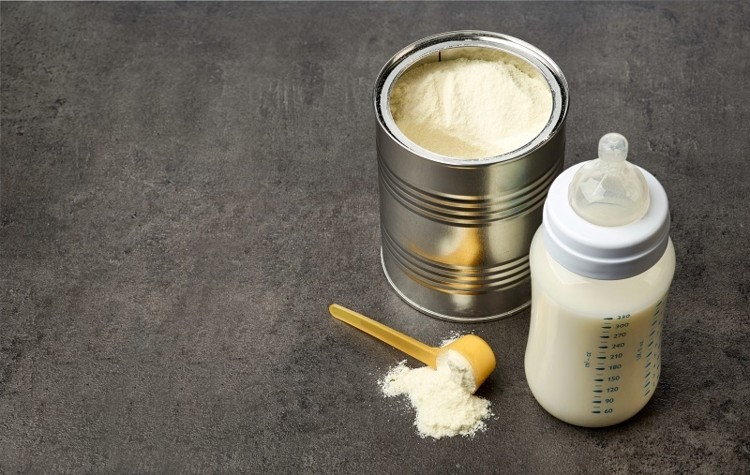
What is formula anyway?
Formula is a highly-regulated dietary substance specifically designed to mimic human milk (as closely as possible). Technically, the FDA defines it as a “food,” but in all reality it’s a food substitute.
The long and short of it is that because the production of infant formula is so strictly monitored (since the passage and updating of key legislation in the 1980s), there’s not that much of a difference between the various brands and types.
My pediatrician literally told me that any generic store brand was perfectly fine. And researchers who published an in-depth infant formula review agree: “one brand is not superior to another.”
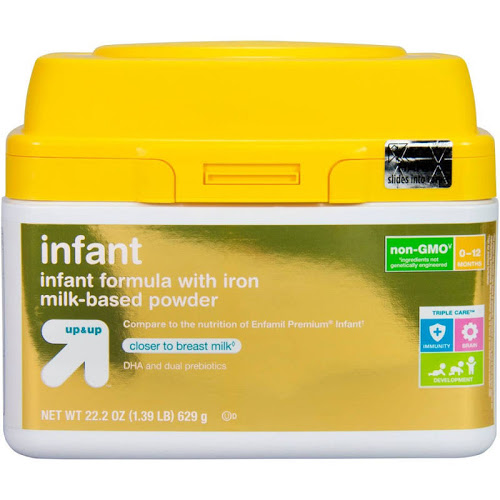
And yet there are different recipes and… formulas. So quite often, parents do actually have preferences, saying their baby “eats better” or “sleeps better” or “better tolerates” this particular brand or that particular kind.
The problem is, figuring out which one is the right fit for you and your baby might demand some trial and error. So your best bet is to consult with your doctor and try some things out.
There are two major kinds of infant formula:
- One derived from cow’s milk protein,
- And the other derived from soy…
- Technically there’s also a third category of hypoallergenic formulas designed for babies who have allergies that prevent them from taking either of the above — if that’s you, check in with your pediatrician.
Most formulas are cow’s-milk-based; they contain purified cow’s milk whey and casein as a protein source, a blend of vegetable oils as a fat source, added lactose as a carbohydrate source, a vitamin-mineral mix, and other ingredients, depending on the manufacturer. *The cow’s milk proteins are broken down, so it’s not the same as feeding your baby cow’s milk — don’t do that.
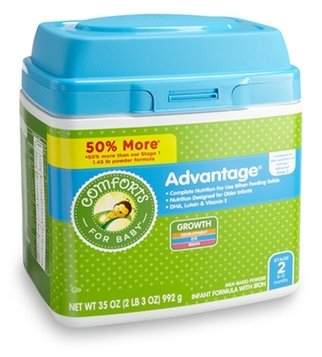
One other note:
Especially after the baby formula crisis last year and numerous formula recalls in the last few years, we think it’s important to really reiterate that there really is not any one “best” formula (that’s what this page is all about). While there are differences between one formula to the next, and you/your baby may have preferences, every infant formula produced in the US is carefully regulated by the FDA for safety and is likewise required to contain precise amounts of certain micro- and macronutrients… so if you ever can’t find the brand you normally use or prefer, you can at least rest assured that a separate label will provide all the necessary nutrients a baby needs for healthy growth and development.
Soy-based Products
Soy-based formulas make up about a quarter of the infant formula market. These are free of whey, casein, and lactose, and substitute in soy protein isolate and other ingredients to meet the established nutrient requirements.
There’s no advantage to soy-based formulas over cow’s-milk ones, so unless you have a specific reason to opt for soy (your baby doesn’t tolerate cow’s milk formula, you want to offer a vegetarian formula, etc.), you can use a cow’s milk formula. (On the flip side, there isn’t any convincing evidence that soy-based formula has adverse effects on health and development, so if you do need to use it, don’t fret.)
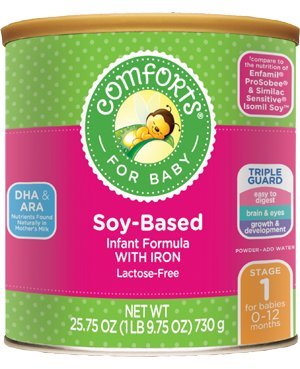
Both cow’s-milk and soy-based formulas have multiple “sub-types,” like organic, sensitive stomach, etc. Again, these decisions depend on your own preferences as well as just seeing what “works” with your baby…
Natural and Organic Brands
Organic formulas need to adhere to the same production standards as anything labeled organic (what that entails is a separate convo for another day…). If you prefer organic, go for it. But don’t lose sleep over it if that’s not within your means — experts report that “there are no documented health benefits to using organic infant formulas.” There’s no difference between non-organic and organic when it comes to micro/macronutrient composition, hormone levels, antibiotic levels, etc.
For Sensitive Tummies – Probiotics and Reduced Lactose
Another subcategory of formulas is targeted for babies suffering from any number of GI upset issues (exhibited by fussiness, colic, gas, spitting up, etc.). These formulas use a partially-hydrolyzed protein, lower (or nonexistent) levels of lactose, and often have added probiotics. These things are supposed to essentially be digestive aids and help babies process formula more easily.
There are also a number of other formula categories that exist virtually entirely for marketing purposes, such as “for breastfeeding supplementation,” “for older babies,” or even “for toddlers.” In comparison to the meticulous regulation of infant formula itself, these kinds of claims are virtually unregulated. (In short – you don’t need them.)
Preparation: Powder, Liquid Concentrate or Ready-to-Use
Any kind of formula can come in three different preparations: powder, liquid concentrate, and ready-to-feed liquids. Powder is the most cost efficient, and since formula costs $$$$, that’s probably your best bet, but ready-to-feed liquids can be a life-saver for some outings and especially for travel. (Trying to prep a bottle on a plane with a screaming baby is not so easy, lemme tell you.)
The formula section in the baby aisle can be a little overwhelming, but the main takeaway is that you shouldn’t stress out over picking a formula. Remember, it’s very possible that you’ll wind up trying a few different brands before you settle on one that’s right for your baby.
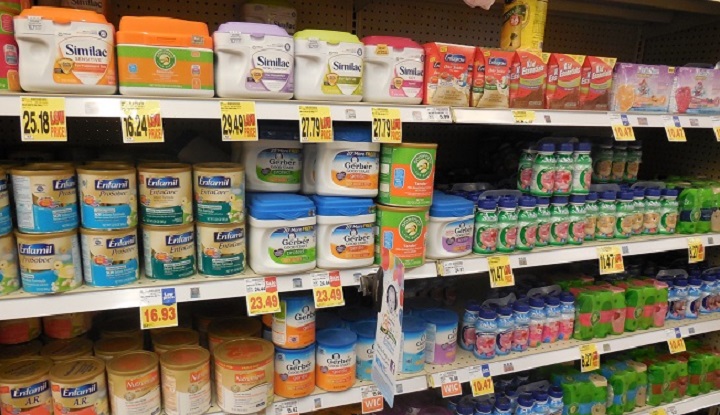
When I asked 5,000 women what was their favorite formula… there was very little consensus. If you’re really having trouble choosing, ask your pediatrician! They’ll point you in the right direction, especially since they’ll understand your baby’s specific needs, if any.
Also: if you’re in the experimental stage of finding the right formula, keep in mind that experts think it’s best to investigate slowly. Dr. Steve Abrams, a neonatologist and member of the AAP’s Nutrition Committee, recommends avoiding switching from one formula to the next too quickly.
(I’m pretty sure my vet said the same thing about switching my dog’s food, soo….)
Top 7 Favorites
(According to our poll, research, and experience… and remember most of these come in various varieties — soy, sensitive, etc.)
Similac Alimentum (hypoallergenic option)
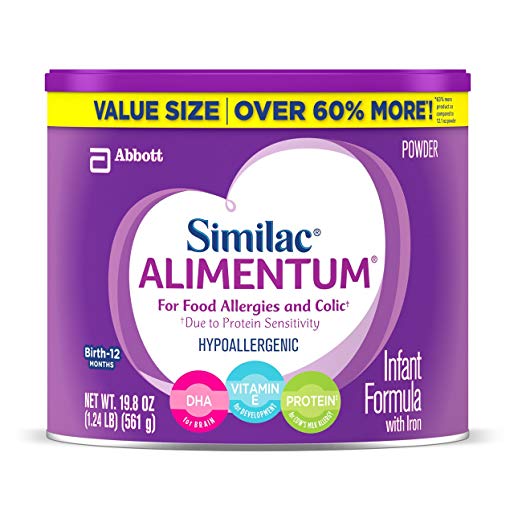
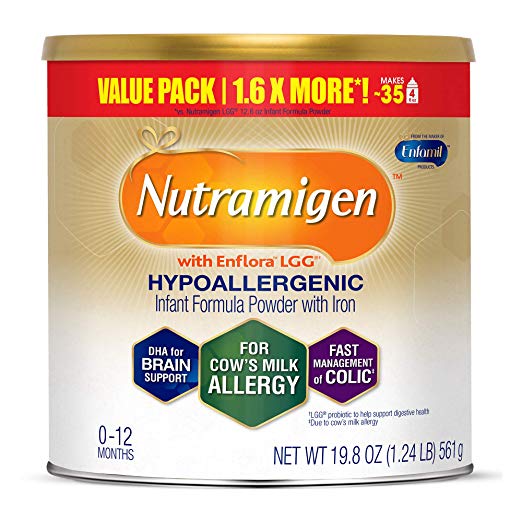
Enfamil Nutramigen (another hypoallergenic pick)
Good luck, mamas!
For more reading, check out:
